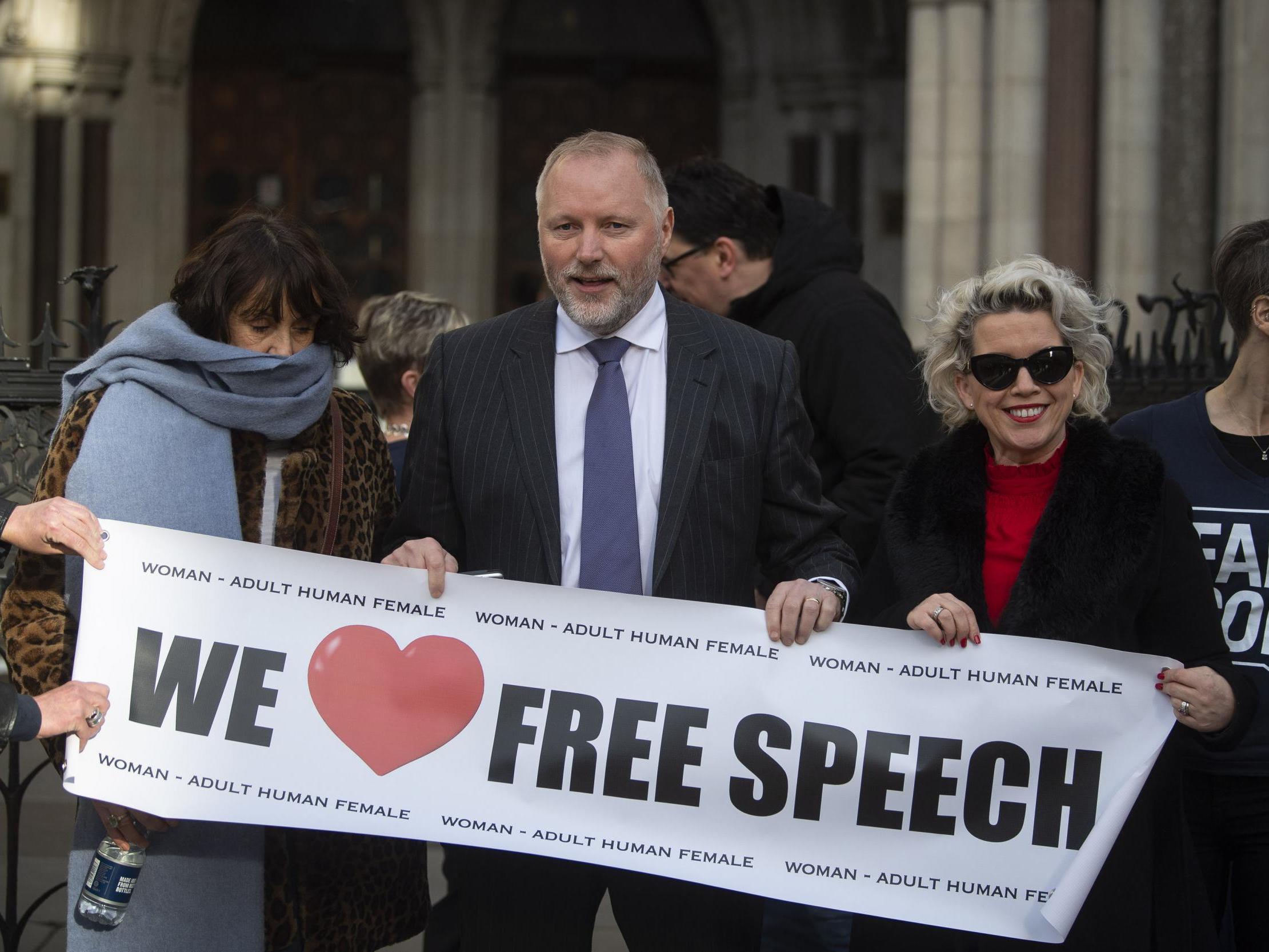Police investigation of former officer’s ‘transphobic’ tweets ruled unlawful by High Court
Harry Miller describes decision as ‘watershed moment for liberty’ after being visited by police at work over social media posts

A police investigation into a series of allegedly transphobic tweets posted by an ex-officer was unlawful, the High Court has ruled.
Humberside Police were found to have wrongly interfered with Harry Miller’s right to freedom of expression by visiting him at work in January 2019 after receiving a complaint about his tweets.
Mr Miller, from Lincolnshire, claims an officer told him that he had not committed a crime but that his posts were being recorded as a “hate incident”, and gave the impression “that he might be prosecuted if he continued to tweet”.
In a ruling on Friday, the High Court described Humberside Police’s actions as a “disproportionate interference”.
Mr Justice Julian Knowles said: “The claimants’ tweets were lawful and there was not the slightest risk that he would commit a criminal offence by continuing to tweet.
“I find the combination of the police visiting the claimant’s place of work, and their subsequent statements in relation to the possibility of prosecution, were a disproportionate interference with the claimant’s right to freedom of expression because of their potential chilling effect.”
Mr Miller, who founded the campaign group Fair Cop, called the ruling “a watershed moment for liberty”.
He added: “The police were wrong to visit my workplace, wrong to ‘check my thinking’.”
His solicitor, Paul Conrathe, said: “It is a strong warning to local police forces not to interfere with people’s free-speech rights on matters of significant controversy.”
Mr Justice Knowles rejected Mr Miller’s wider challenge to the lawfulness of the College of Police guidance on hate crimes, ruling that it “serves legitimate purposes and is not disproportionate”.
The College of Policing's definition of a hate incident includes “any non-crime incident which is perceived, by the victim or any other person, to be motivated by a hostility or prejudice against a person who is transgender or perceived to be transgender”.
Between November 2018 and January 2019, Mr Miller posted a series of tweets in relation to the debate about reforming the Gender Recognition Act 2004.
In one tweet, Mr Miller wrote: “I was assigned mammal at birth, but my orientation is fish. Don’t mis-species me.”
This tweet, along with a number of others, was reported to Humberside Police as being transphobic.
At a hearing in November, Mr Miller’s barrister, Ian Wise QC, said his client was “deeply concerned” about proposed reforms to the law on gender recognition and had used Twitter to “engage in debate about transgender issues”.
He argued that Humberside Police, following the College of Policing’s guidance, had sought to “dissuade [Mr Miller] from expressing himself on such issues in the future”.
In Friday’s ruling, Mr Justice Knowles said: “There was not a shred of evidence that [Mr Miller] was at risk of committing a criminal offence.”
“The effect of the police turning up at his place of work because of his political opinions must not be underestimated.
“To do so would be to undervalue a cardinal democratic freedom. In this country we have never had a Cheka, a Gestapo or a Stasi. We have never lived in an Orwellian society.”
Deputy Chief Constable Bernie O’Reilly, of the College of Policing, said: “Policing’s position is clear – we want everyone to feel able to express opinions as passionately as they wish without breaking the law.
“Hate incidents can be a precursor to these types of crimes and without recording them the police will begin to lose sight of what is happening in their communities – and potentially lose their confidence.”
Mr Miller has appealed against the High Court’s ruling on the College of Policing guidance. Permission has been granted for the case to move to the Supreme Court.
Additional reporting by PA
Bookmark popover
Removed from bookmarks